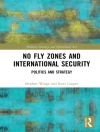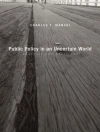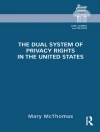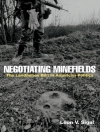The shock of Donald Trump’s election caused many observers to ask whether the liberal international order—the system of institutions and norms established after World War II—was coming to an end. The victory of Joe Biden, a committed institutionalist, suggested that the liberal order would endure. Even so, important questions remained: Was Trump an aberration? Is Biden struggling in vain against irreparable changes in international politics? What does the future hold for the international order?
The essays in Chaos Reconsidered answer those questions. Leading scholars assess the domestic and global effects of the Trump and Biden presidencies. The historians put the Trump years and Biden’s victory in historical context. Regional specialists evaluate U.S. diplomacy in Asia, Europe, Africa, the Middle East, and Latin America. Others foreground topics such as global right-wing populism, the COVID-19 pandemic, racial inequality, and environmental degradation. International relations theorists reconsider the nature of international politics, pointing to deficiencies in traditional IR methods for explaining world events and Trump’s presidency in particular. Together, these experts provide a comprehensive analysis of the state of U.S. alliances and partnerships, the durability of the liberal international order, the standing and reputation of the United States as a global leader, the implications of China’s assertiveness and Russia’s aggression, and the prospects for the Biden administration and its successors.
Inhoudsopgave
Introduction, by Robert Jervis, Diane N. Labrosse, Stacie E. Goddard, and Joshua Rovner
Part I. Trump and International Relations Theory
1. The Trump Experiment: An Assessment, by Robert Jervis
2. Trump Huffed and Puffed, and Liberal International Relations Theory Blew Down, by Michael N. Barnett
3. America First? The Erosion of American Status Under Trump, by Michelle Murray
4. Has Trump Changed How We Think About American Security?, by Deborah Avant
5. Trump’s Realism, by Randall Schweller
Part II. America First
6. When Donald Met Washington: The Genesis of “Great-Power Competition”, by Emma Ashford
7. What Trump’s Nationalism Ended Up Looking Like, by Thomas W. Zeiler
8. Trump’s Presidency as History, by Ryan Irwin
9. Globalism and U.S. Foreign Relations After Trump, by Frank Ninkovich
10. The Derangements of Sovereignty: Trumpism and the Dilemmas of Interdependence, by Samuel Zipp
11. The Trump Presidency in Historical Perspective, by John A. Thompson
Part III. American Institutions and Alliances After Trump
12. Presidents, Precedents, and the Laws of War, by Matthew Evangelista
13. Trump to the Intelligence Community: You’re Fired, by Richard Immerman
14. The Trump Administration and Economic Sanctions, by Nicholas Mulder
15. Donald Trump and the Terrible, Horrible, No-Good, Very Bad Deal, by Susan Colbourn
16. Trump’s Transactional Follies: The Consequences of Treating the Arms Trade Like a Business, by Jennifer Spindel
Part IV. Trump Abroad
17. Trump and Russia: Less Than Meets the Eye, by Angela Stent
18. Trump and U.S.-China Strategic Competition as the “New” Normal, by Jonathan Di Cicco
19. Engage? Trump and the Asia-Pacific, by Dayna Barnes
20. Riding the Rollercoaster: India and the Trump Years, by Tanvi Madan
21. Swaggering Home: Trump, Grenell, and Pompeo in Conflict with Germany, by William Gray
22. Death-Grip Handshakes and Flattery Diplomacy: The Macron-Trump Connection and Its Larger Implications for Alliance Politics, by Kathryn Statler
23. “Mr. Brexit”: Donald Trump and the United Kingdom’s Departure from the European Union, by Lindsay Aqui
24. The Trump Administration and the Middle East: Not Much Change, Not Much Success, by F. Gregory Gause III
25. Fences Make Bad Hombres: Trump and Latin America, by Christy Thornton
Part V. The Expanding Meaning of International Security: Human Rights, Racial Justice, and COVID-19
26. “Shithole Countries”: Was Trump’s Foreign Policy Racist?, by William I. Hitchcock
27. Rethinking Vulnerability: Structural Inequality as National Insecurity, by Jason Ludwig and Rebecca Slayton
28. Lifting the Veil on Racial Capitalism: American Foreign Policy Before and After Trump, by Nivi Manchanda
29. Racialized Threats and Security Rationales in U.S. Immigration Policies, by Audie Klotz
30. The Trump Presidency, the Question of Palestine, and Biden’s Business as Usual, by A. Dirk Moses and Victor Kattan
31. The Trump Administration’s Insidious Approach to Human Rights, by Sarah B. Snyder
Part VI. Is Liberal Internationalism Still Alive?
32. Trump’s Foreign Policy Legacy, by Joshua Busby and Jonathan Monten
33. “America First” Meets Liberal Internationalism, by Stephen Chaudoin, Helen V. Milner, and Dustin Tingley
34. Liberal Internationalism and Partisan Conflict in the Post-Trump United States, by George N. Georgarakis and Robert Y. Shapiro
Part VII. Looking Forward: The Prospects for Joe Biden’s Presidency
35. The Biden Administration and Russia: Deeper Into a U.S.-Russia Cold War, by Robert Legvold
36. Joe Biden, American Democracy, and the China Challenge, by James Goldgeier
37. Transatlantic Relations After Trump: Mutual Perceptions and Strategy in Historical Perspective, by Alessandro Brogi
38. One Eye on the Rearview Mirror: The Middle East from Trump to Biden, by James Stocker
39. Reclaiming America and Its Place in the World, by Elizabeth Economy
Part VIII. Coda
40. World History, the American President, and the Gibbon Paradox, by Jeremy Adelman
41. Trump’s Limited Legacy, by Lawrence Freedman
42. American Constraints: Trump’s “Legacy” or Inexorable History, by Charles S. Maier
43. Making Trump History, by Martin Conway
List of Contributors
Index
Over de auteur
Robert Jervis (1940–2021) was the Adlai E. Stevenson Professor of International Affairs at Columbia University.Diane N. Labrosse is the managing editor of H-Diplo and the senior managing editor of the Robert Jervis International Security Studies Forum.Stacie Goddard is the Betty Freyhof Johnson ’44 Professor of Political Science and faculty director of the Madeleine Korbel Albright Institute for Global Affairs at Wellesley College.Joshua Rovner is an associate professor in the School of International Service at American University.Jervis, Labrosse, and Rovner coedited, with Francis J. Gavin, Chaos in the Liberal Order: The Trump Presidency and International Politics in the Twenty-First Century (Columbia, 2018).












